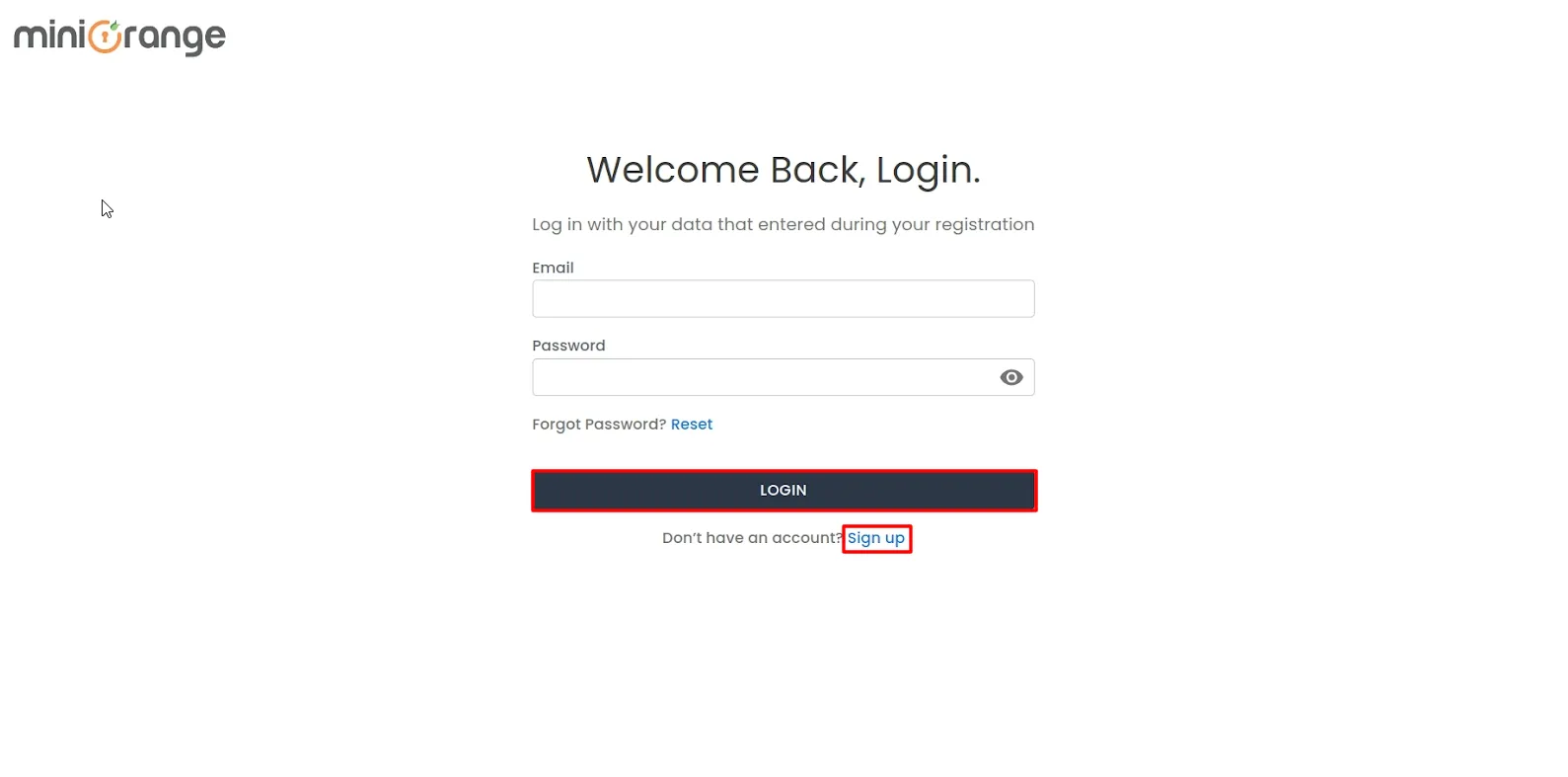- Home
- UEM
- Enroll Android Devices into MDM
How to Enroll Android Devices into Mobile Device Management (MDM)
Mobile Device Management (MDM) makes enrolling Android devices in your organization easier and safer. This guide will show you how to set up miniOrange Mobile Device Management (MDM) on your Android devices, step by step, and give you some essential tips on adding policy restrictions on devices.
For more information on MDM, check out the miniOrange Android Mobile Device Management (MDM) Solution page.
Follow the Step-by-Step Guide given below for Enroll Android Devices for MDM
Step 1: Sign up with miniOrange MDM
Step 2: Setup Android Enterprise Registration
- Once logged in, Navigate to ANDROID -> Android Enterprise and click on Register button. You will need to Register your organization with Android Enterprise initially and this will be a one-time process.
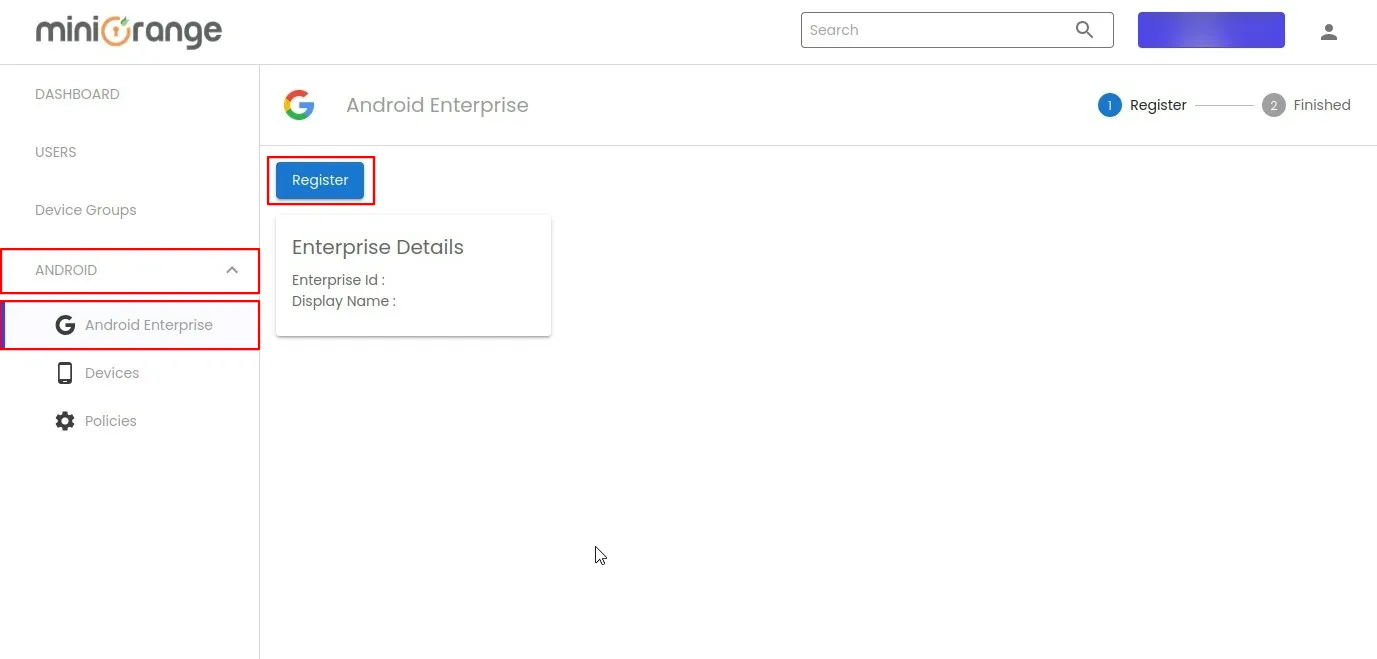
- You will be redirected to play.google.com/work for the Android for Work registration.
Note: You cannot use any of your corporate email addresses (example@organization.com) for this registration so you need to use a Gmail account for the same (example@gmail.com)
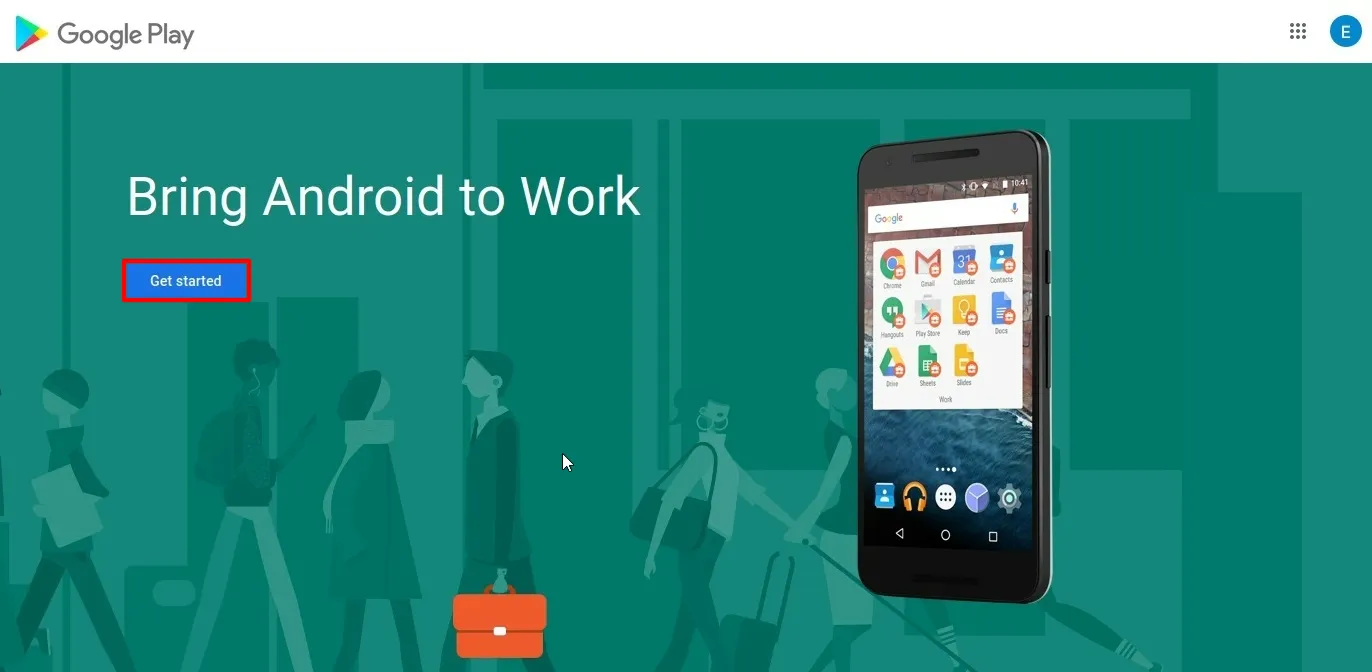
- Give a name for your organization enterprise, and click Next button.
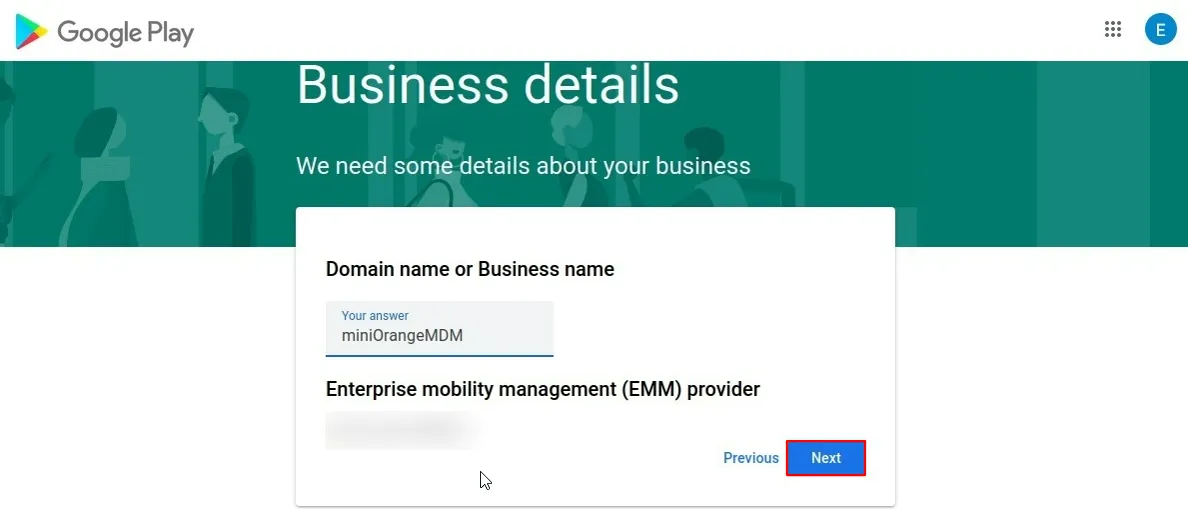
- Click on Complete Registration button to complete the process of Android Enterprise registration.

- You can see the android enterprise details.
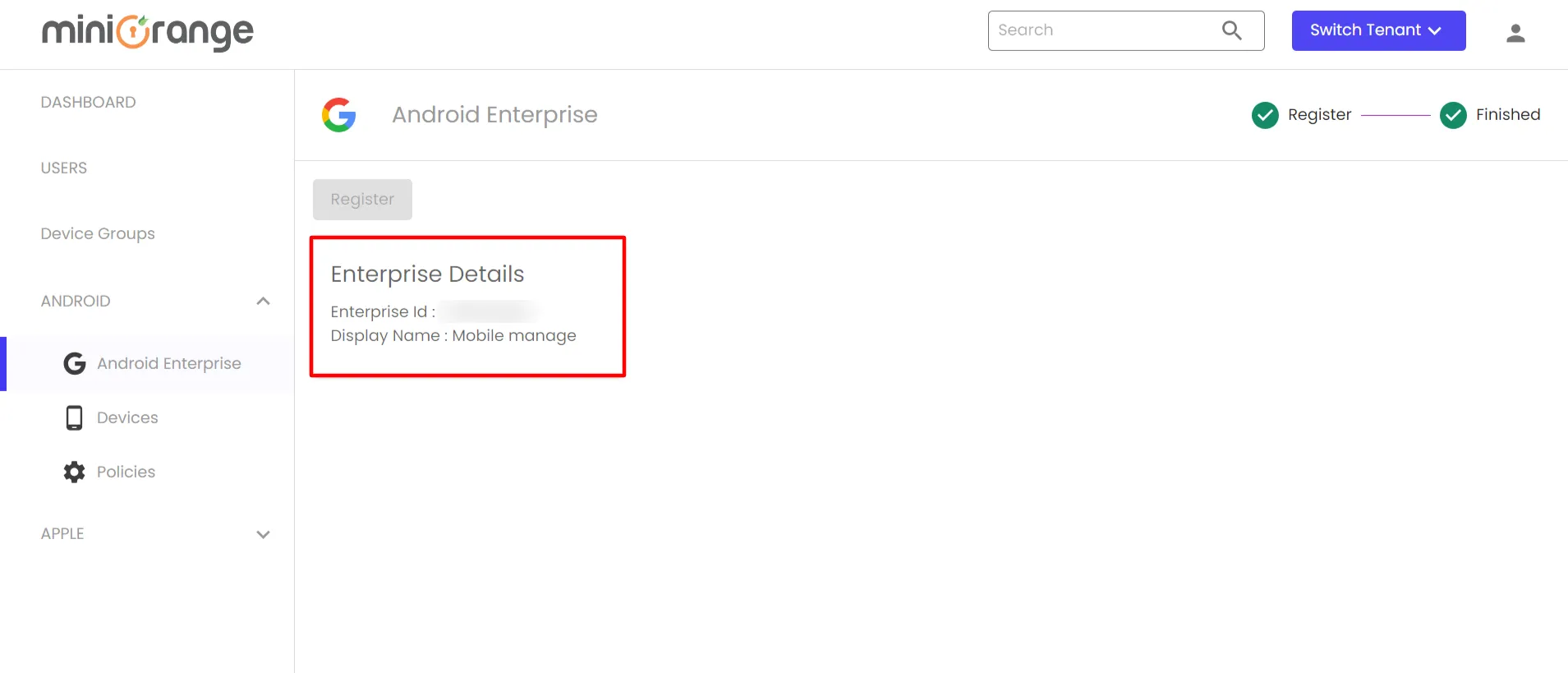
Step 3: Create Users & Groups
- Now, Go to the USERS tab and click on Add User to create a new user and enter Email and User Name and click on Add User button.
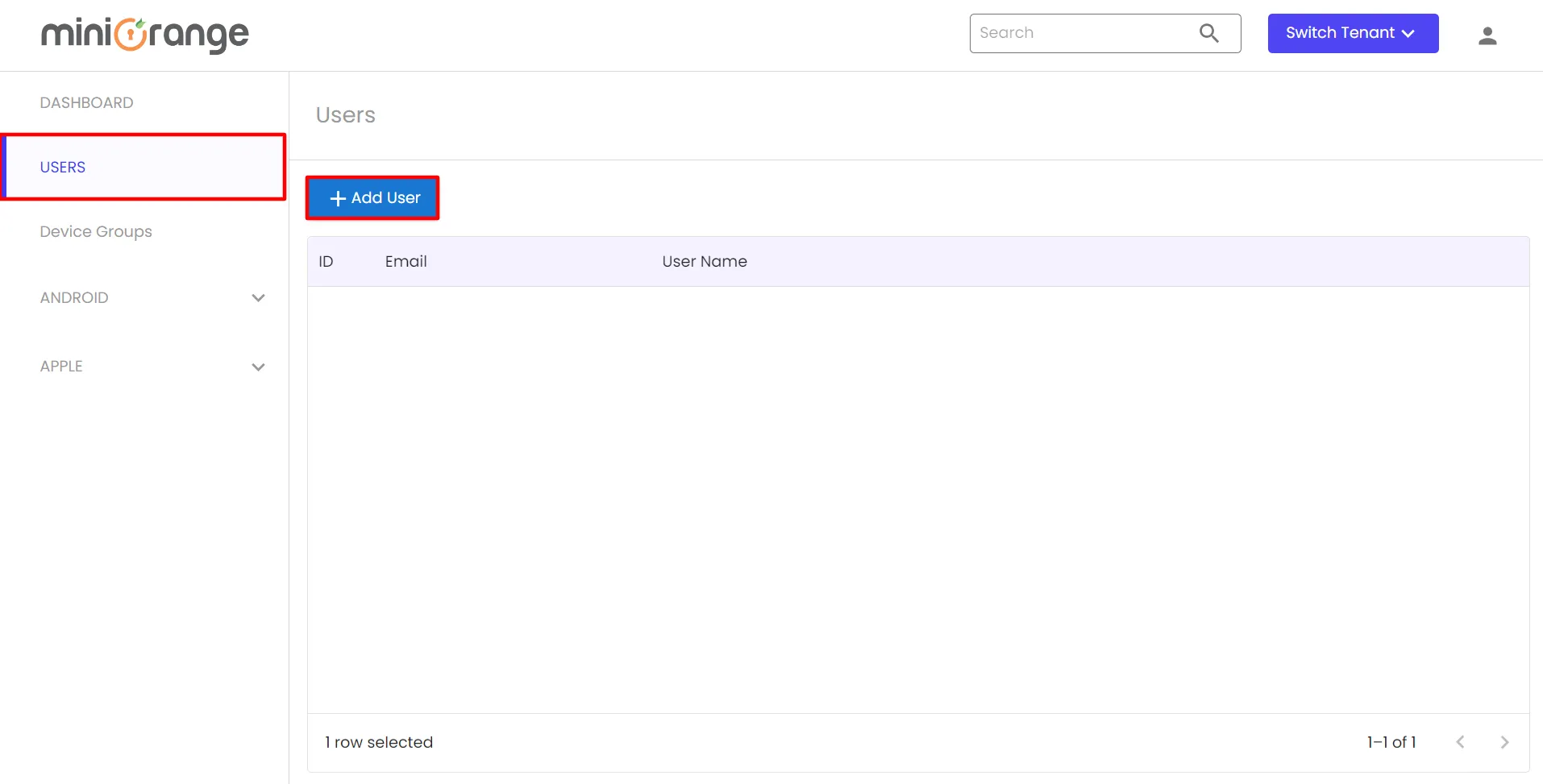
- Go to Device Groups, here the default group will already created with the default policy assigned. You can create other groups as per your requirements. Click on Add Group button.
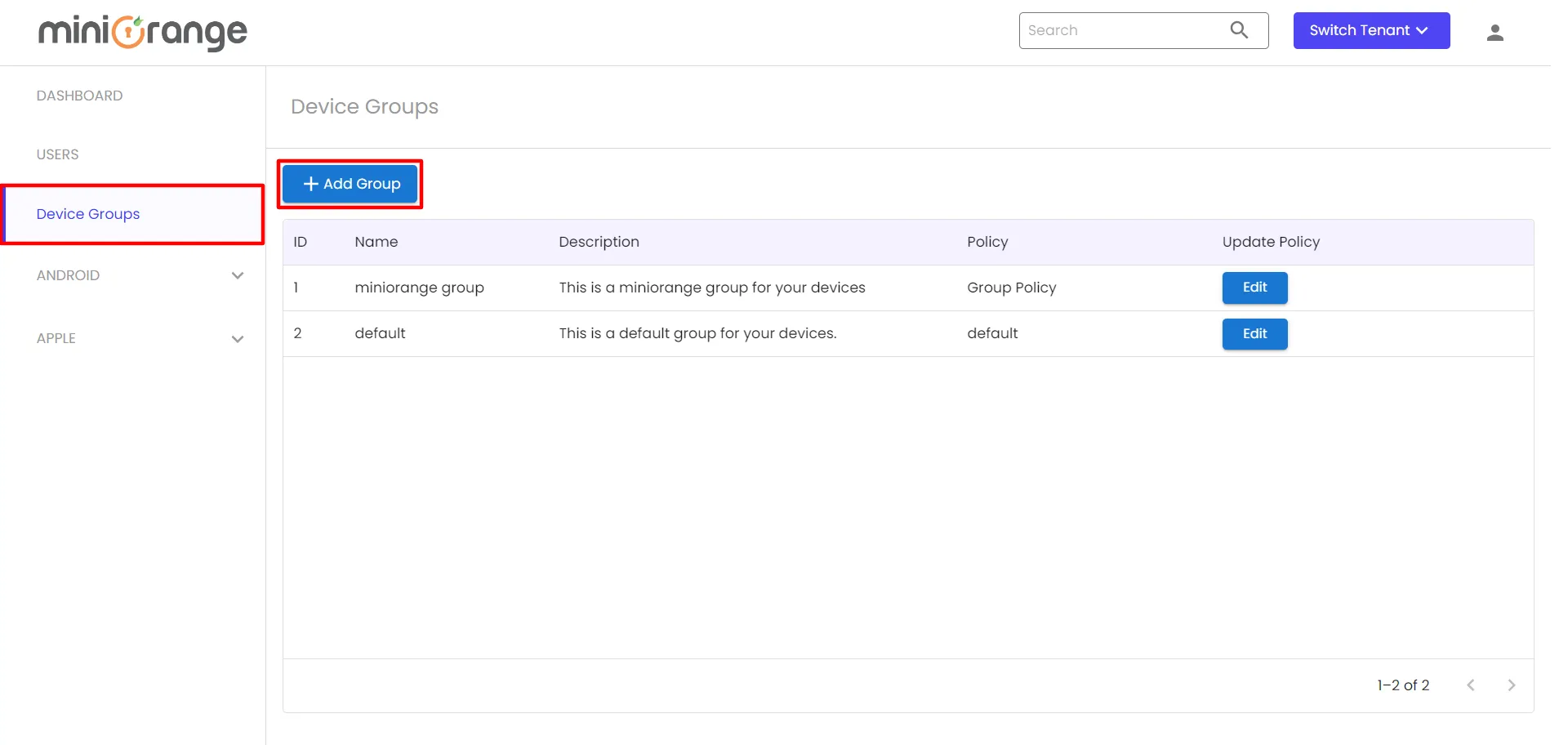
- Enter following details and assign the policies as needed. E.g. different device groups for managers, security checkers, etc.
- click on Add Group to save details.
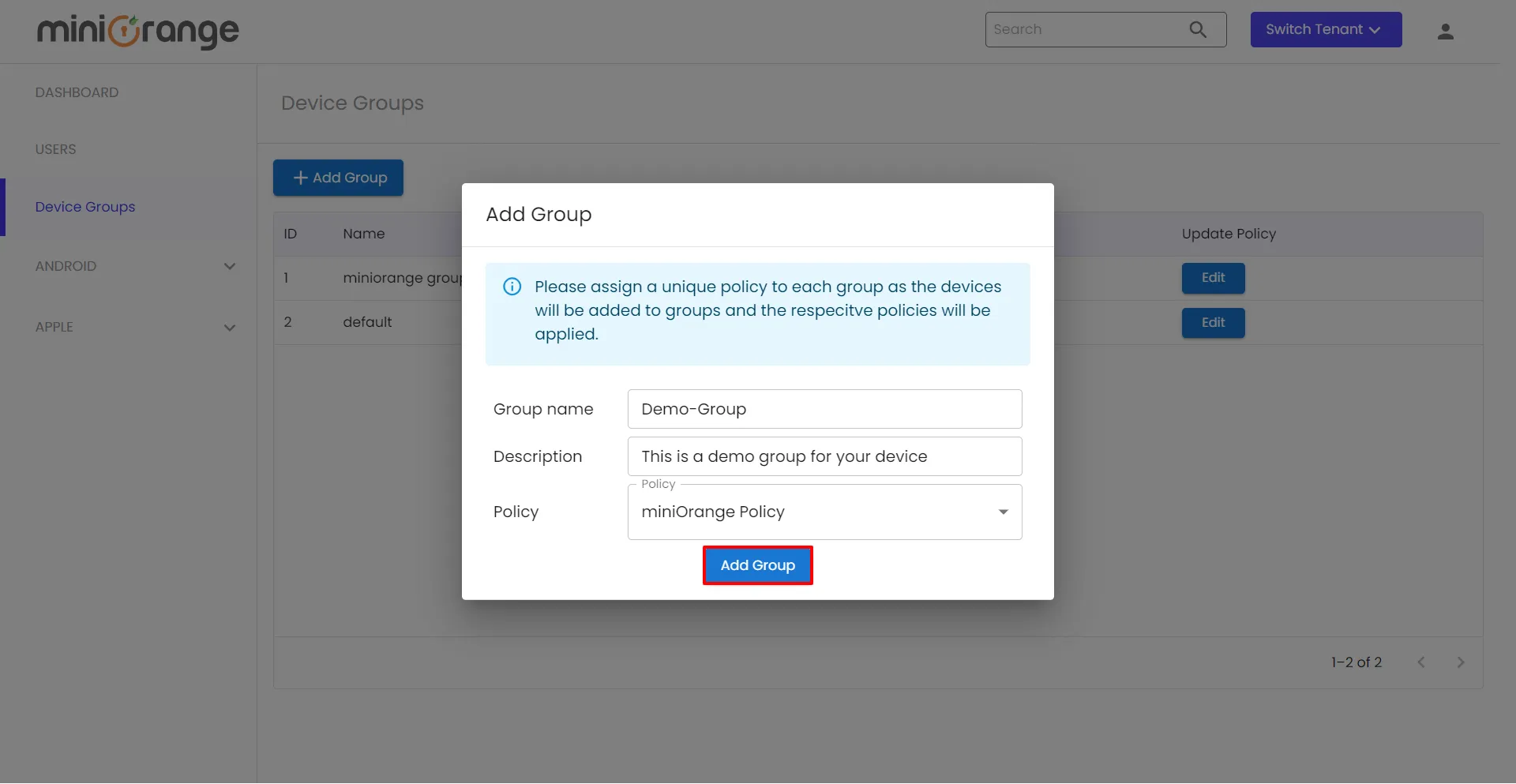
Step 4: Device Enrollment
- Go to ANDROID -> Devices, here you will see the list of enrolled devices. You can send the enrollment emails from this screen.
- Click on Enroll button.
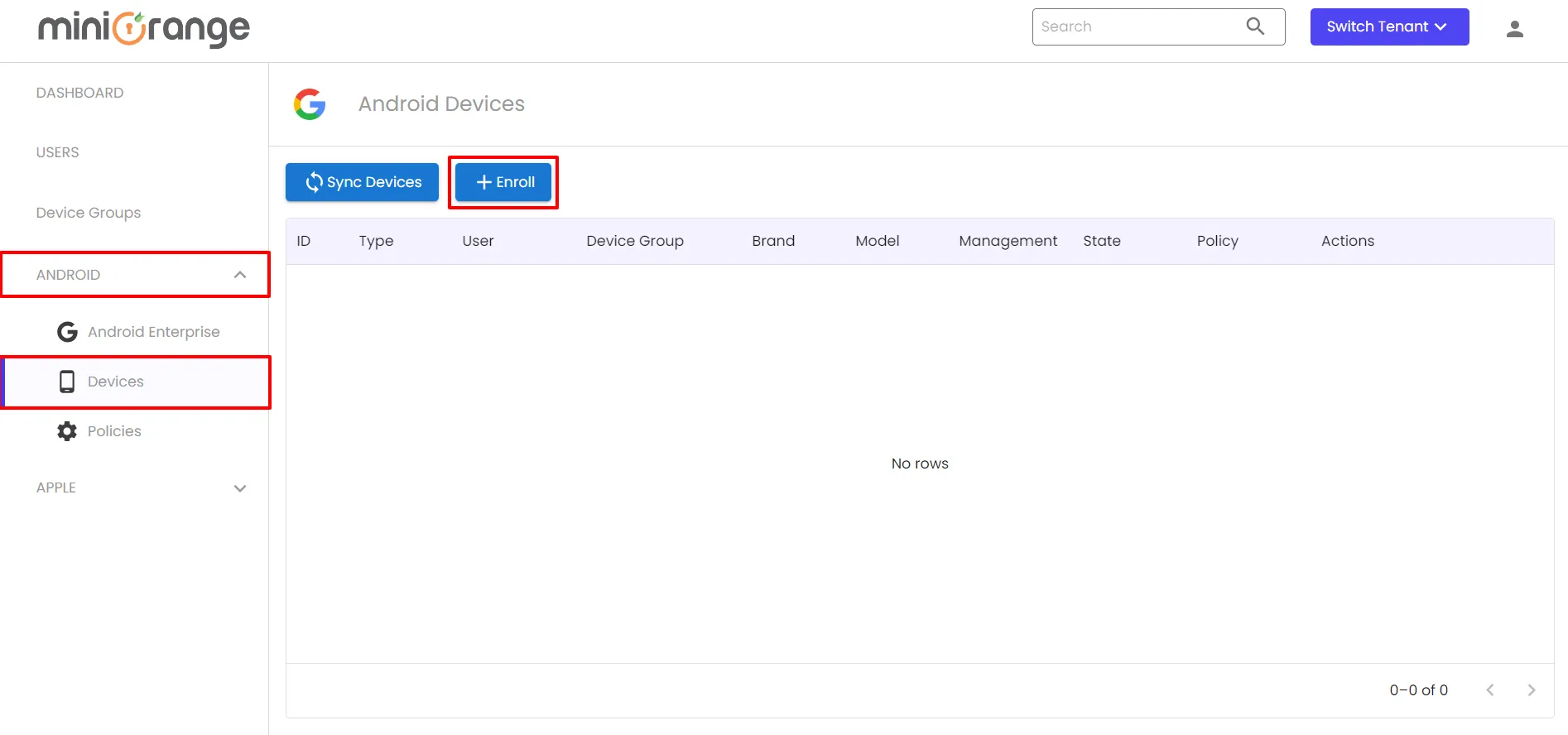
- Select the user from dropdown which you want to send email and Choose device type "Personal" or "Corporate".
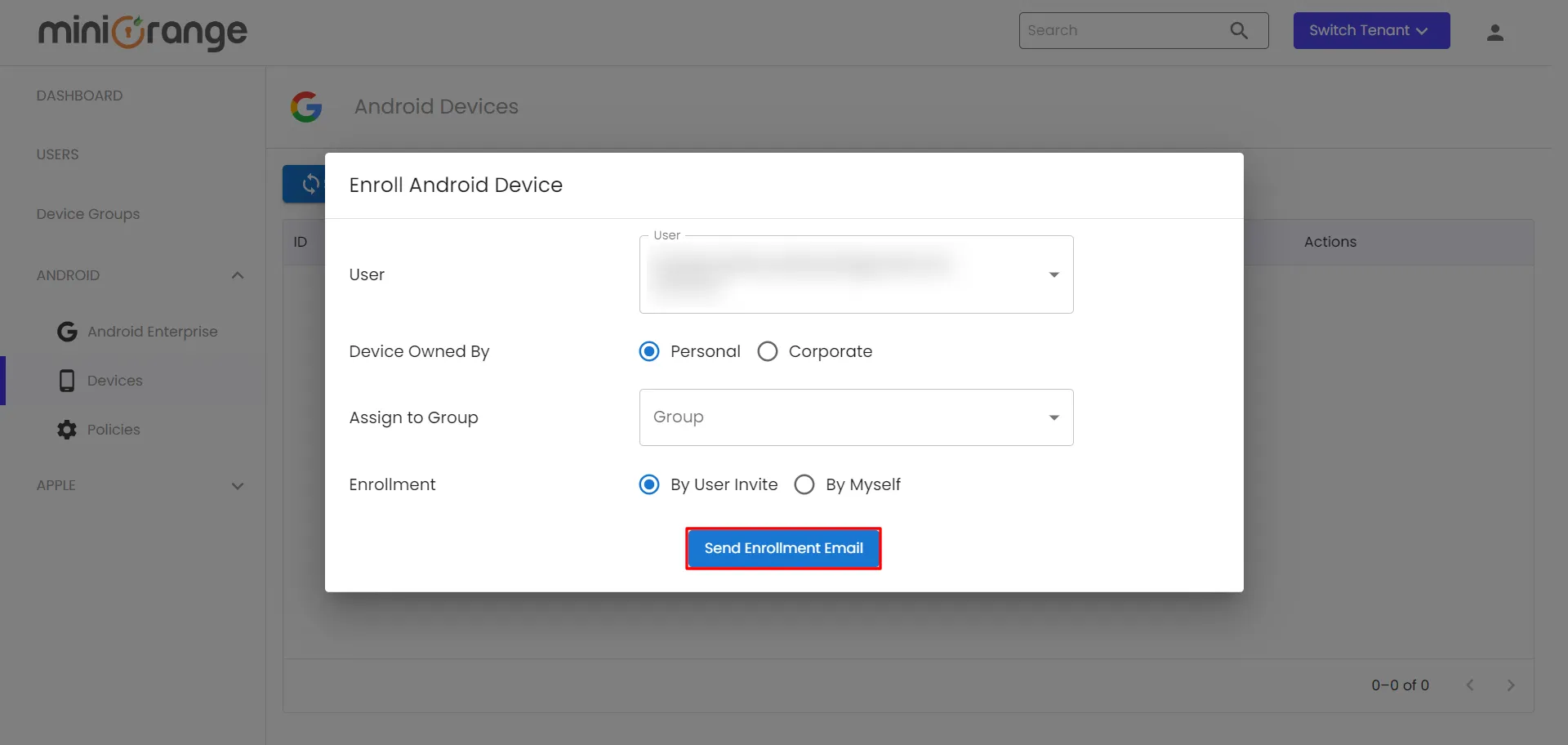
- Assign the device to a group from group dropdown.
- Choose enrollment type "By User Invite" or "By Myself".
- By User Invite - Send an email with a QR code and an enrollment token with necessary steps to enroll the device.
- By Myself (IT Admin) - IT admin can enroll the device by himself/herself. Details are shown on the screen along with the steps to enroll.
- Click Send Enrollment Email button.
- User will get the enrollment email with a QR code, enrollment token, and steps in the following format.
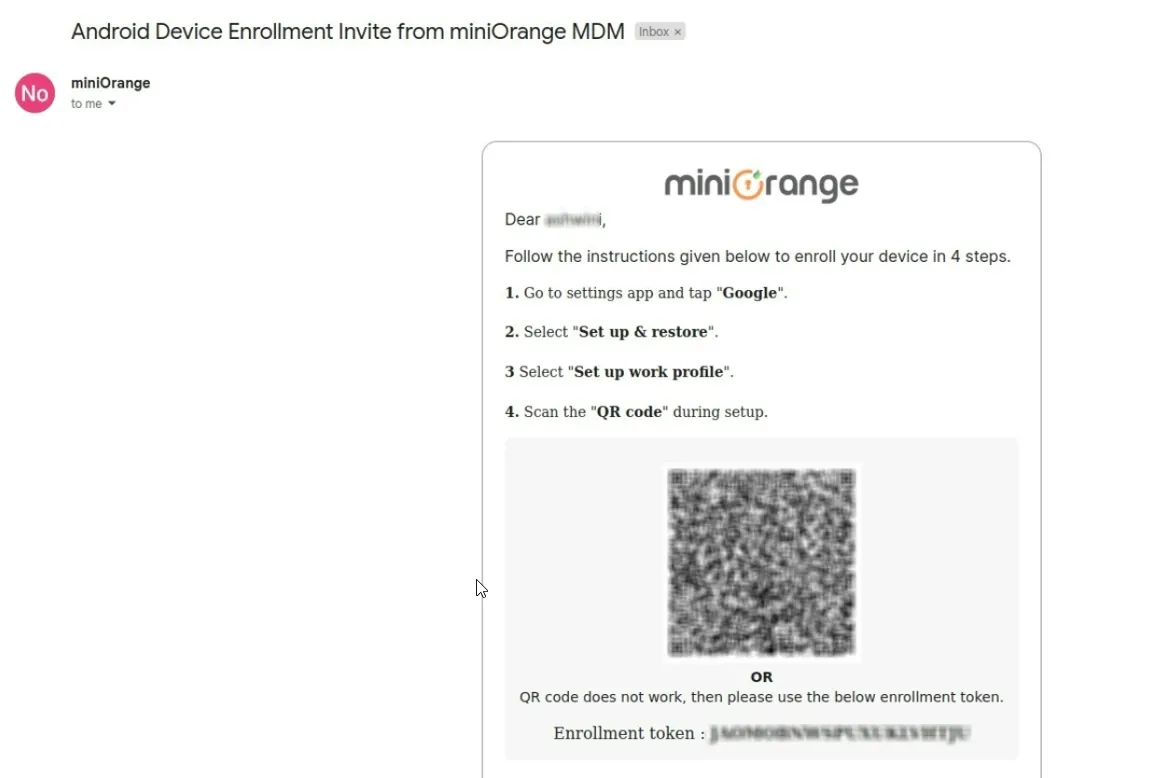
- Click on sync devices button.
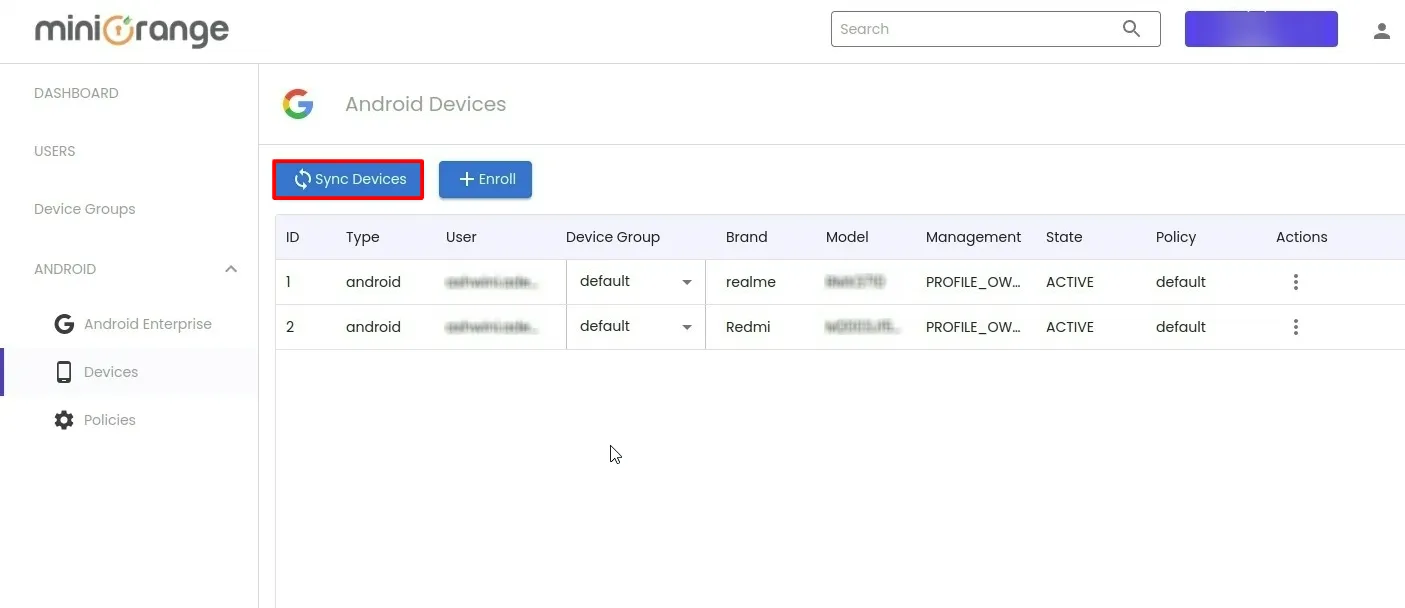
- You can see the list of enrolled devices in the same tab as below.
Step 5: Configuring Policies
- We already created the default policy with no restrictions and a default group for you. if you want to create new policy follow the steps below.
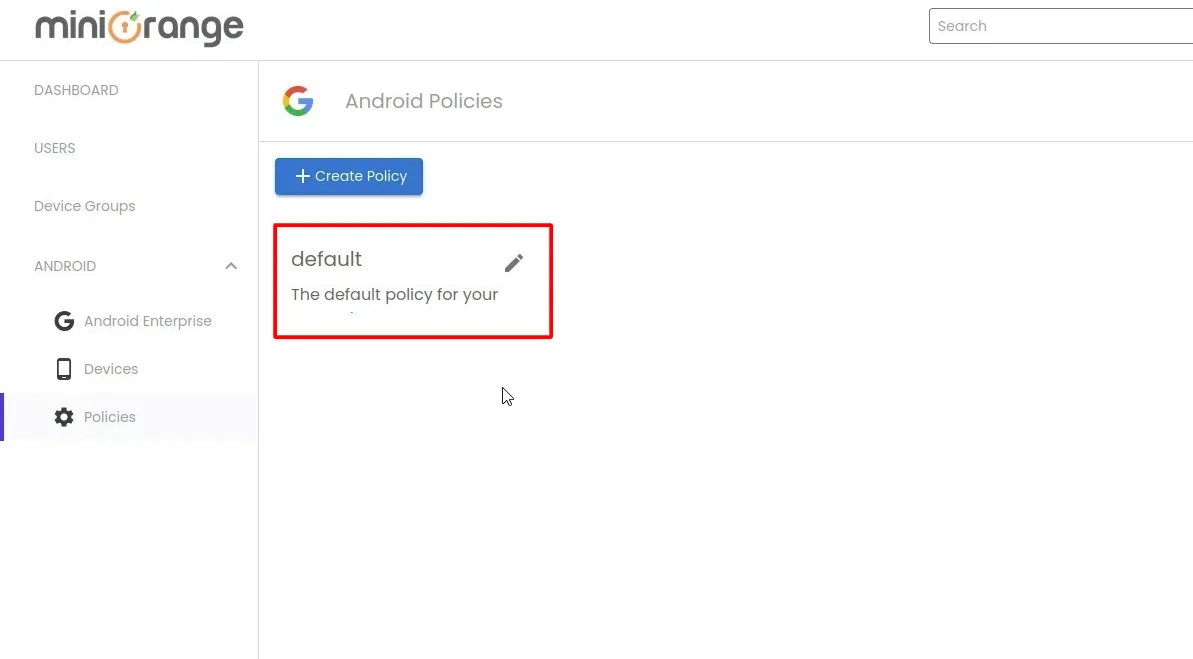
- Go to ANDROID -> Policies. Click on Create Policy to create the new policy.
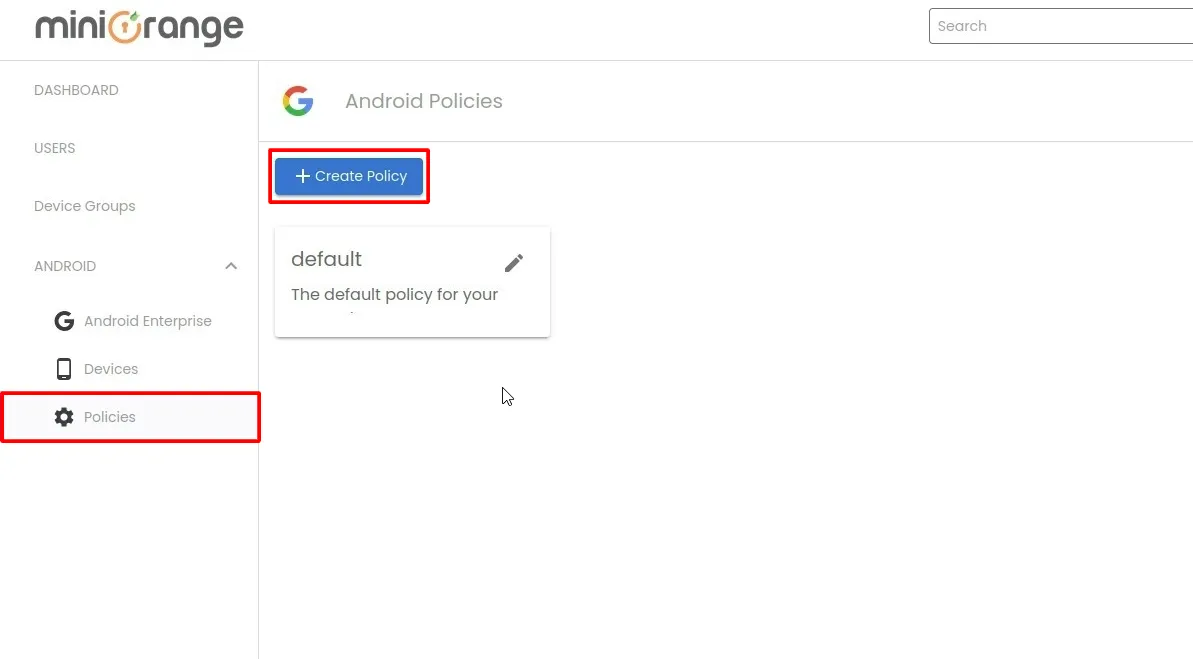
- Give a name and description for your policy and here you can configure different policy settings categories such as App Settings, Password Settings, Security, etc.
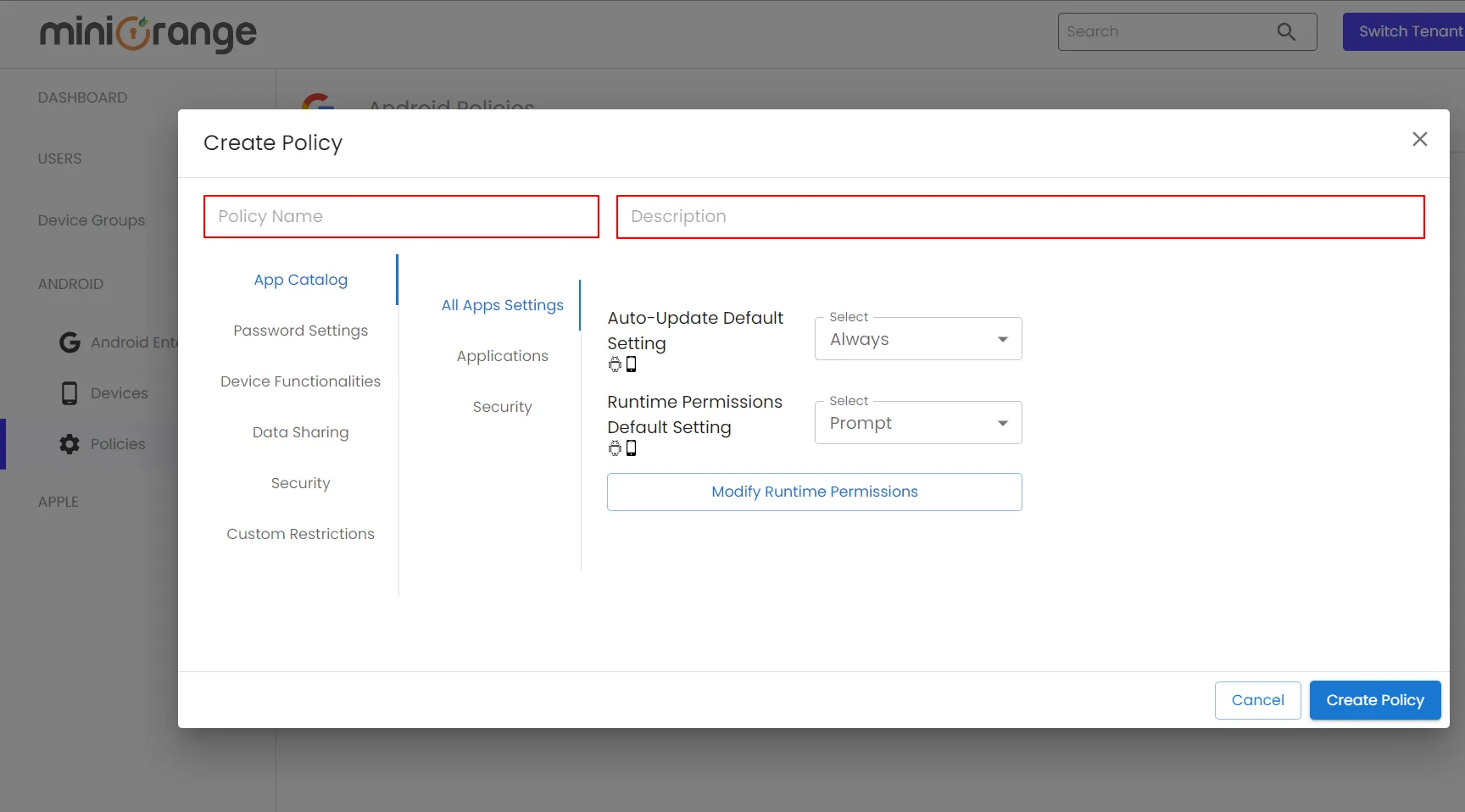
- Go to Applications and add all the work apps that you want to be installed on the enrolled devices.
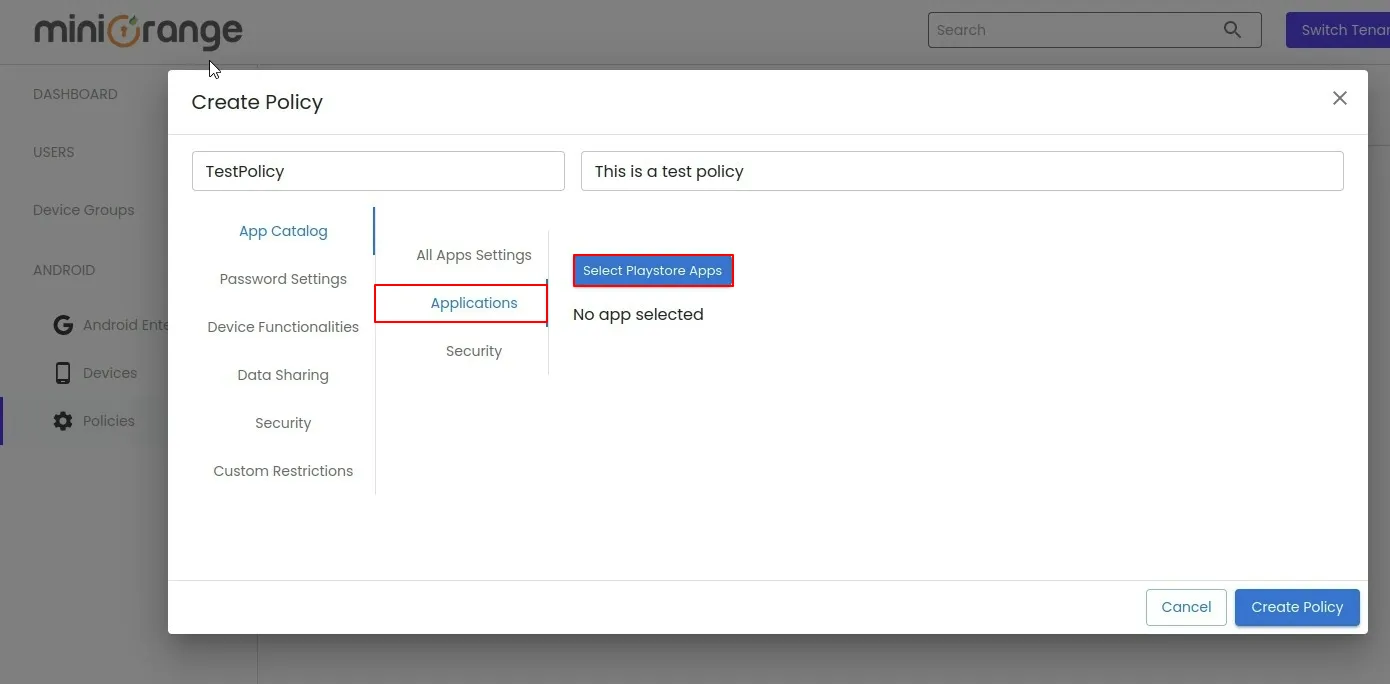
- Clicking on Select Playstore Apps will open a Google Managed Playstore and you can search for the required application. After clicking on the individual app, you need to click the Select button to add it to your policy configuration.
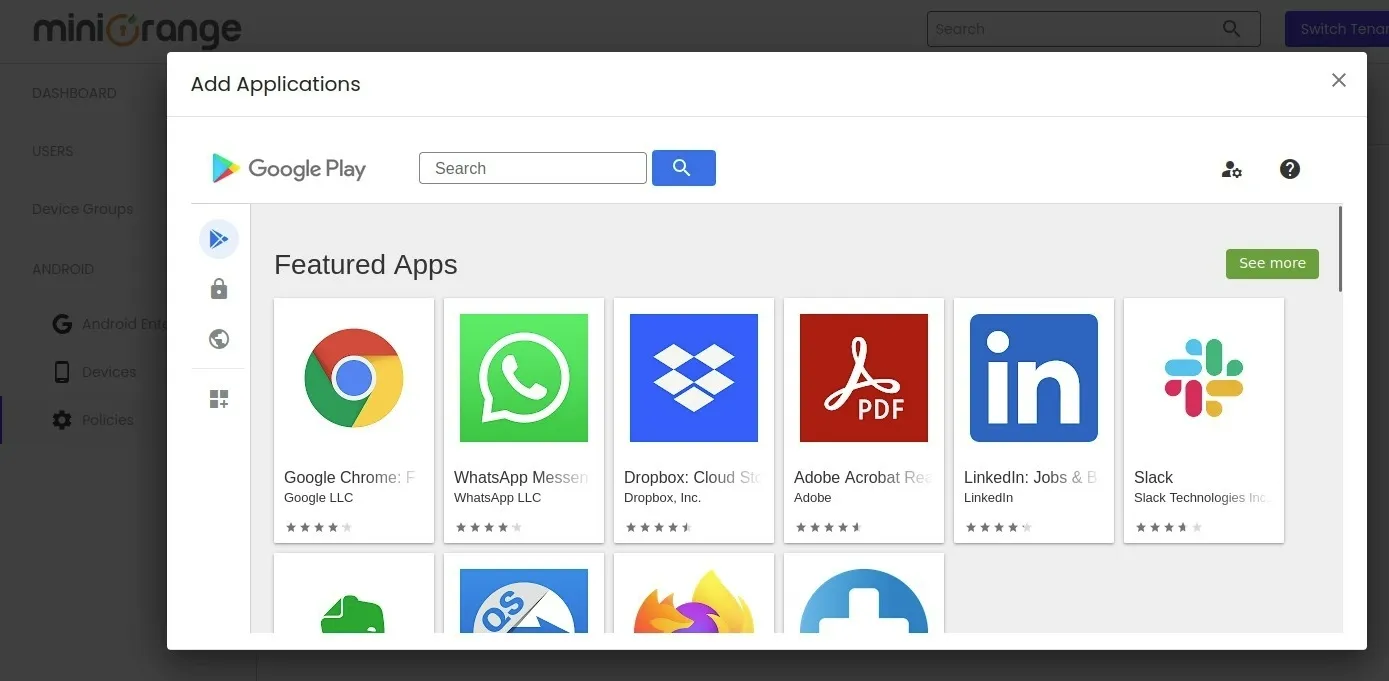
- Once you close the Play Store, you can see the list of all selected applications. You can set the installation type of apps on this screen.
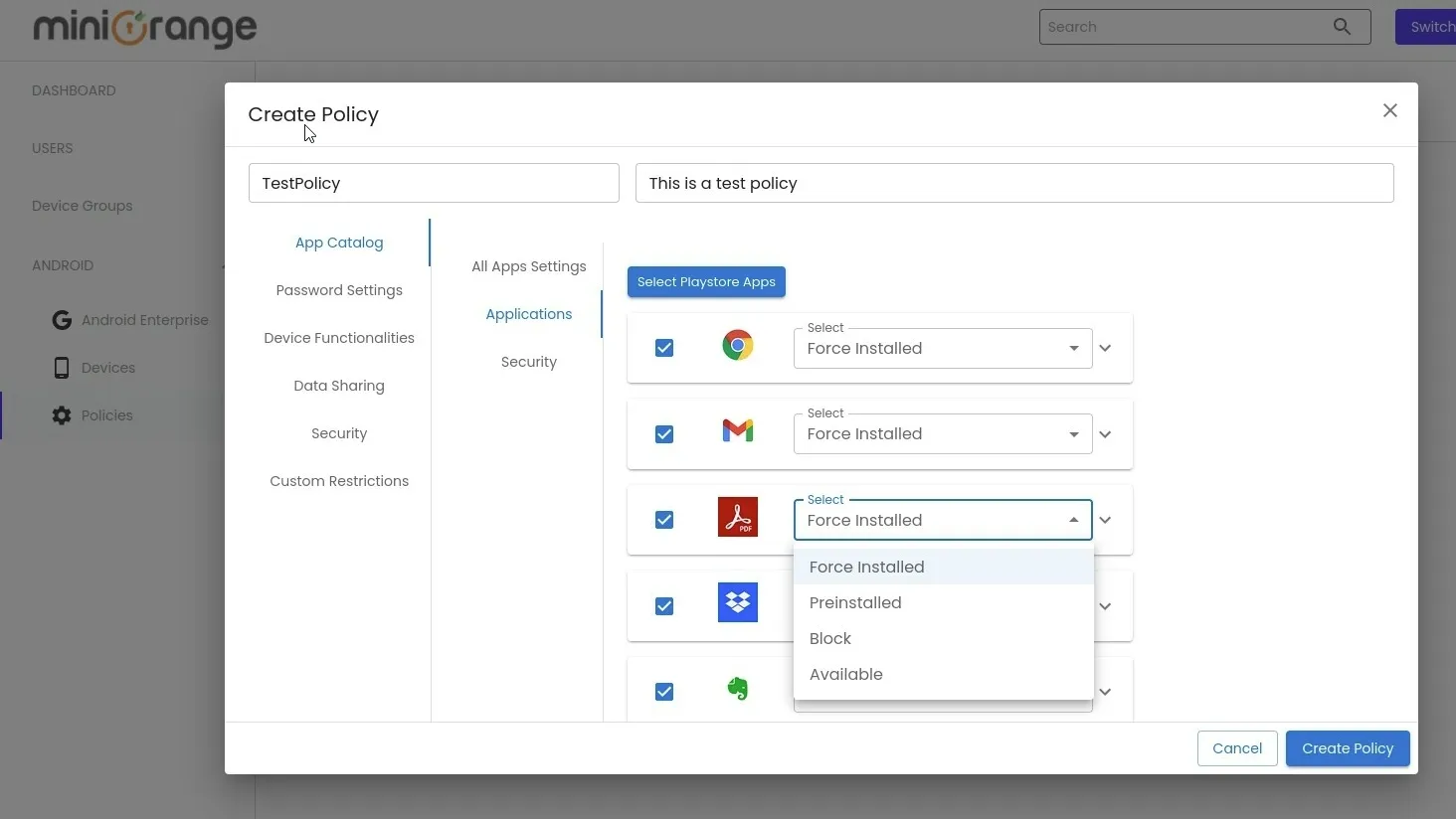
- For each app, you will get to set the extended configuration. If an app allows managed configuration then you can set it by clicking on the Configurations button under the specific app.
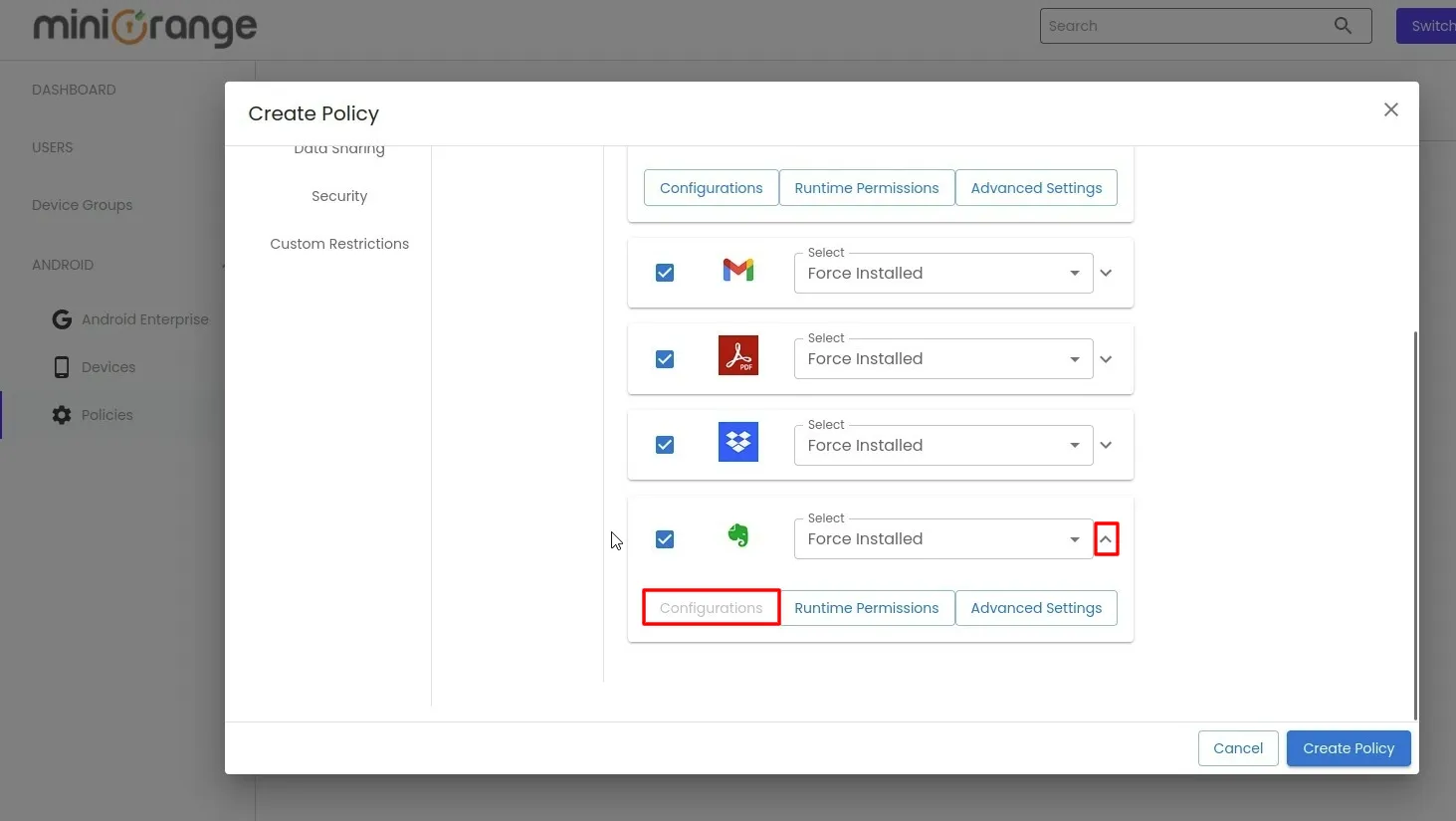
- Clicking on Runtime Permission for any app will open the following configuration that specifies the runtime permissions requested that are specific to each app.
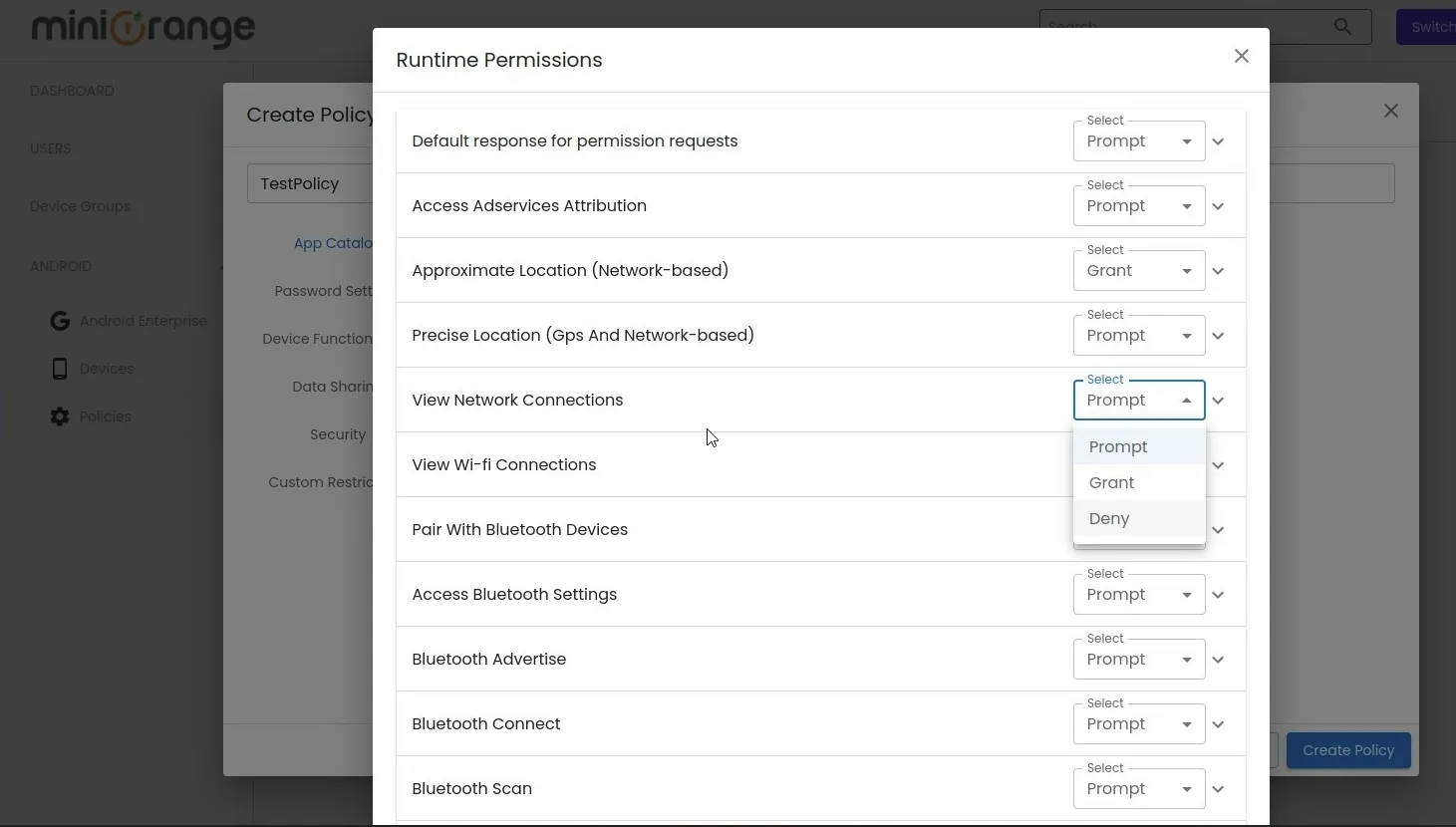
- Clicking on Advanced Settings will open the following configurations that include settings such as Update policy, Widgets, etc.
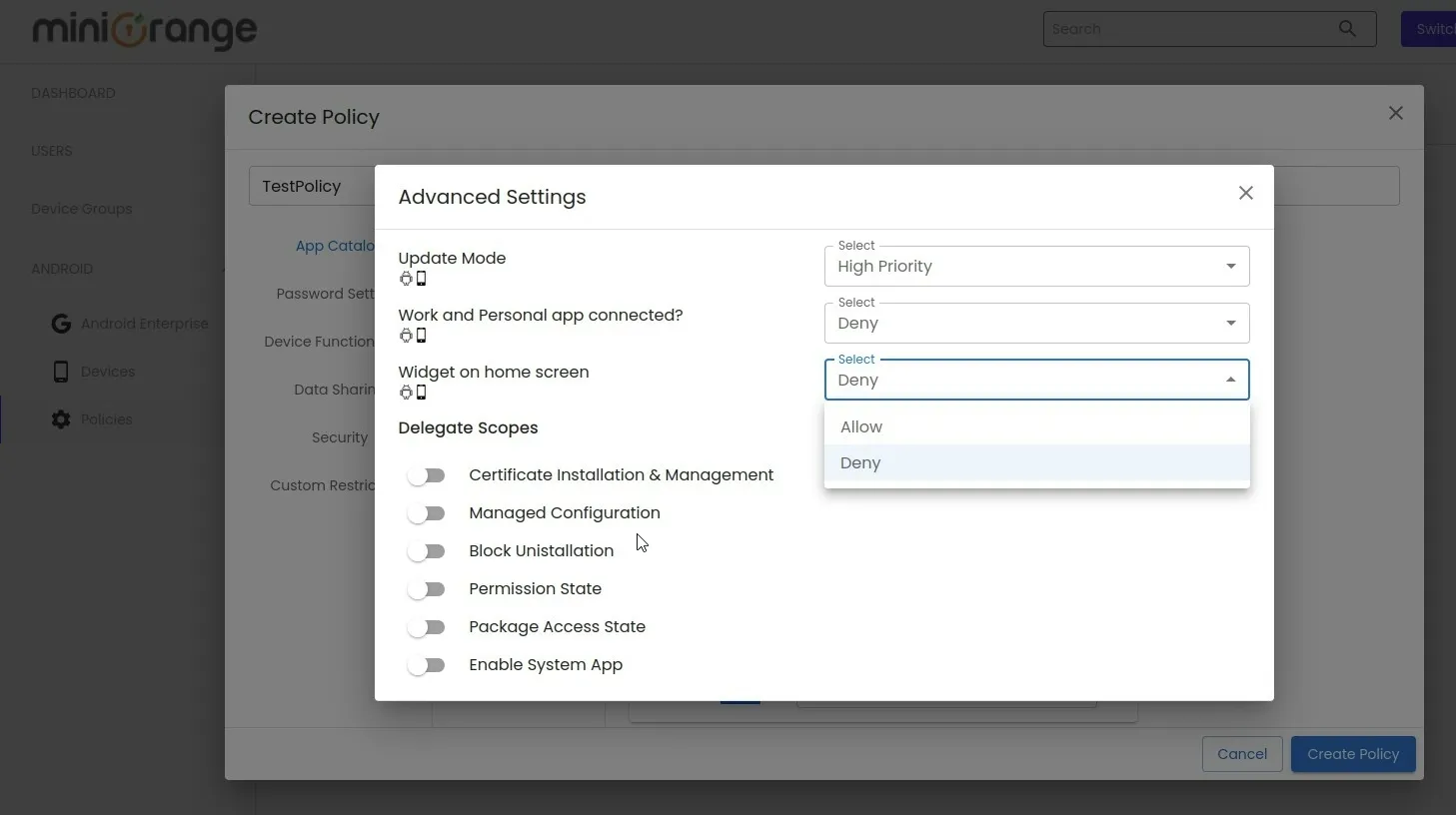
- In Password Settings, you can set the password for Work Profile and specify the password quality, password history, etc.
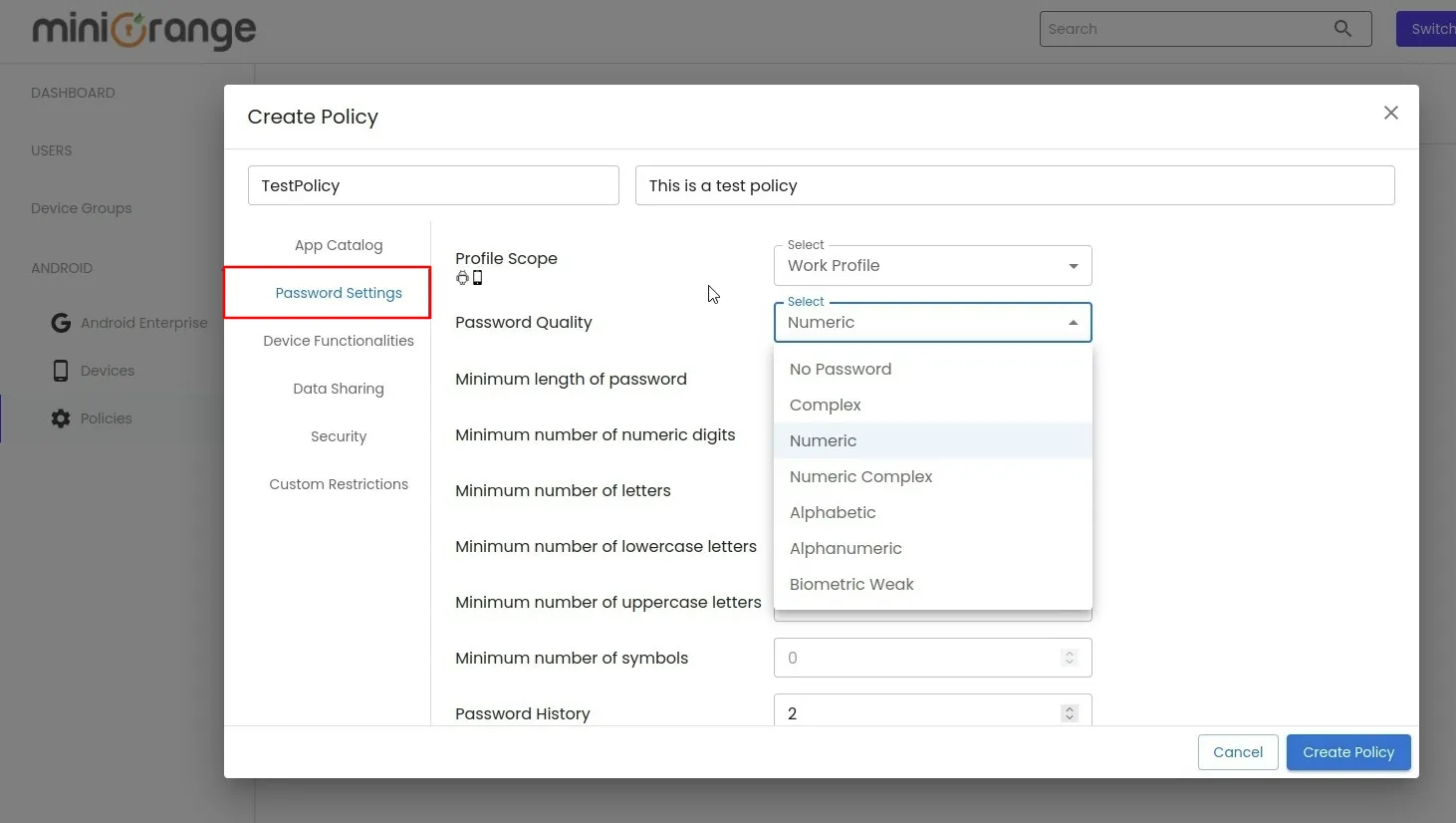
- There are Device functionality settings such as configuring the Camera, Screen recording permissions, etc.
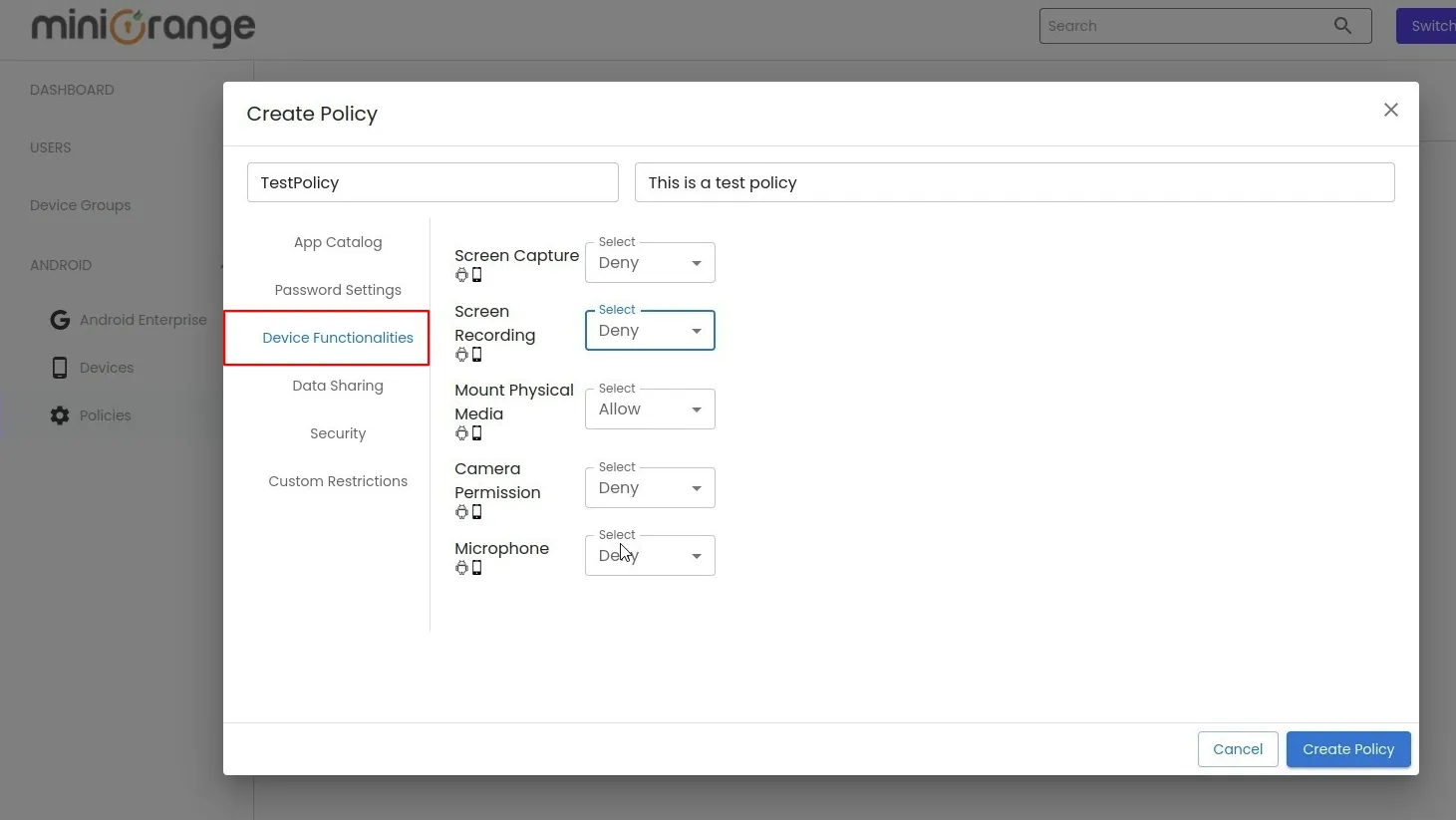
- Data sharing settings provide configurations for cross-profile data sharing such as copy-paste, Data access, etc.
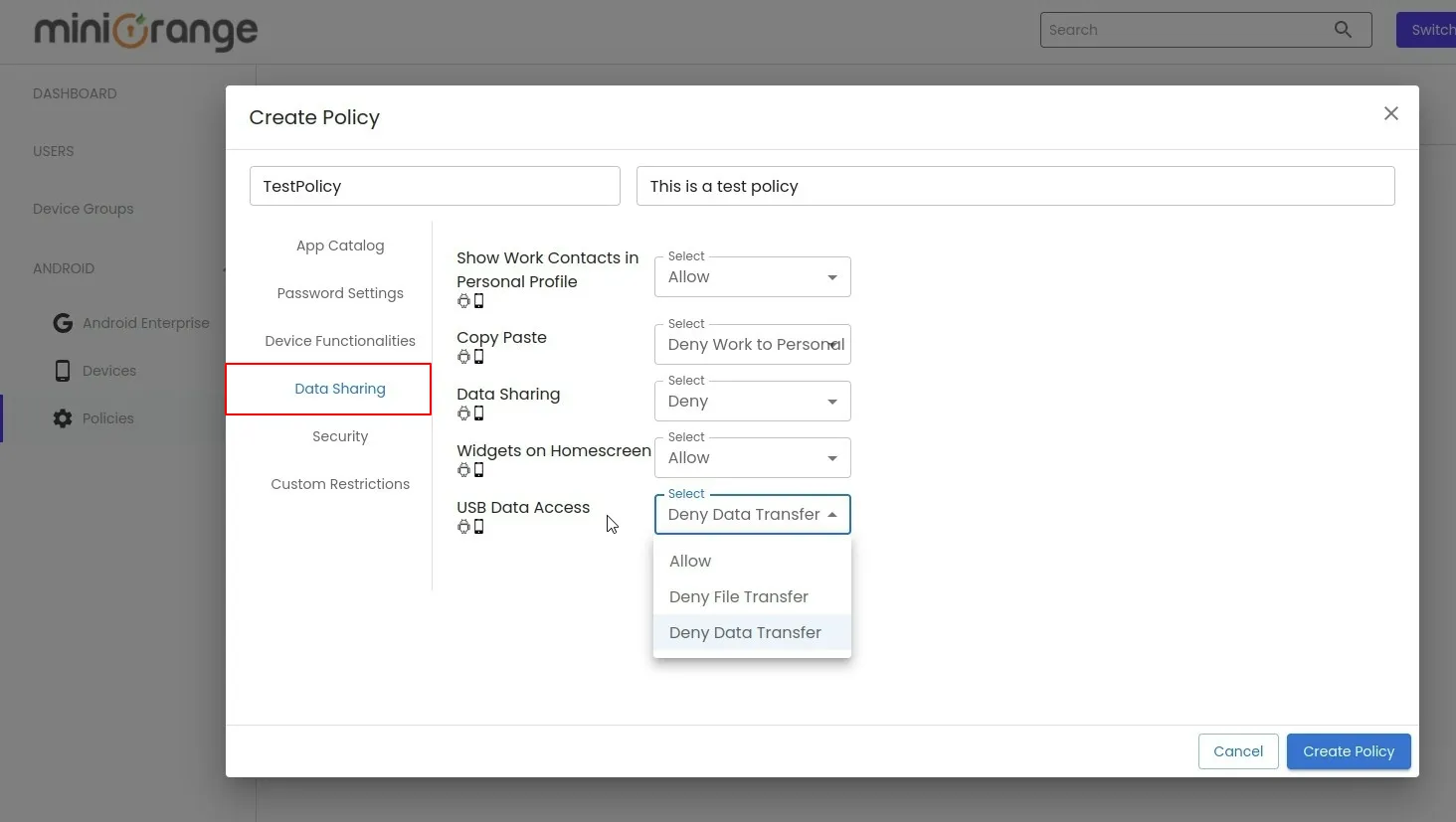
- In the Security settings, you can set Compliance rules e.g. enforcing the password settings for enabling the Work Profile on the device.
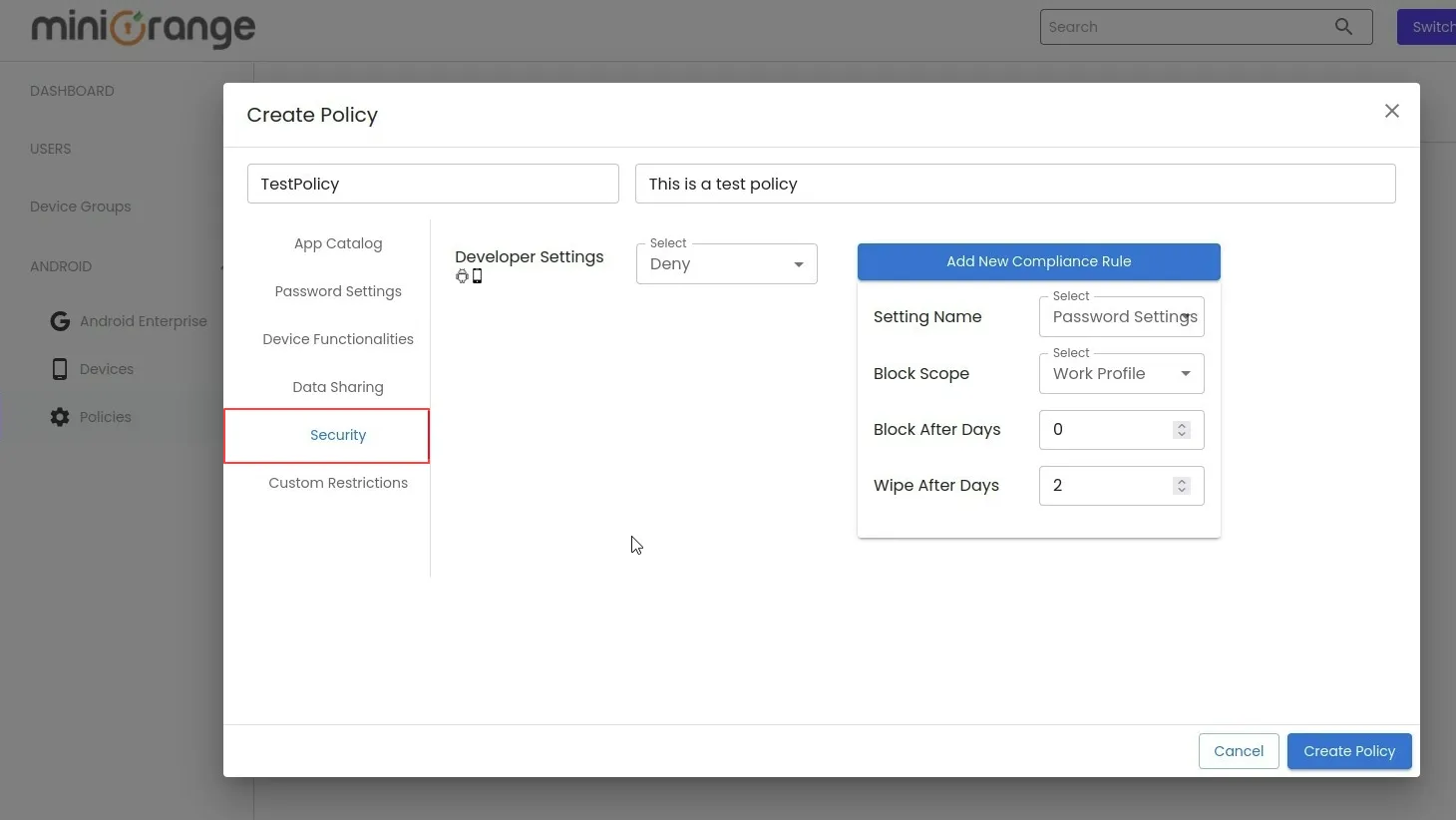
- Once you have configured all details, click on Create Policy and your new policy will be listed as shown in the image below.
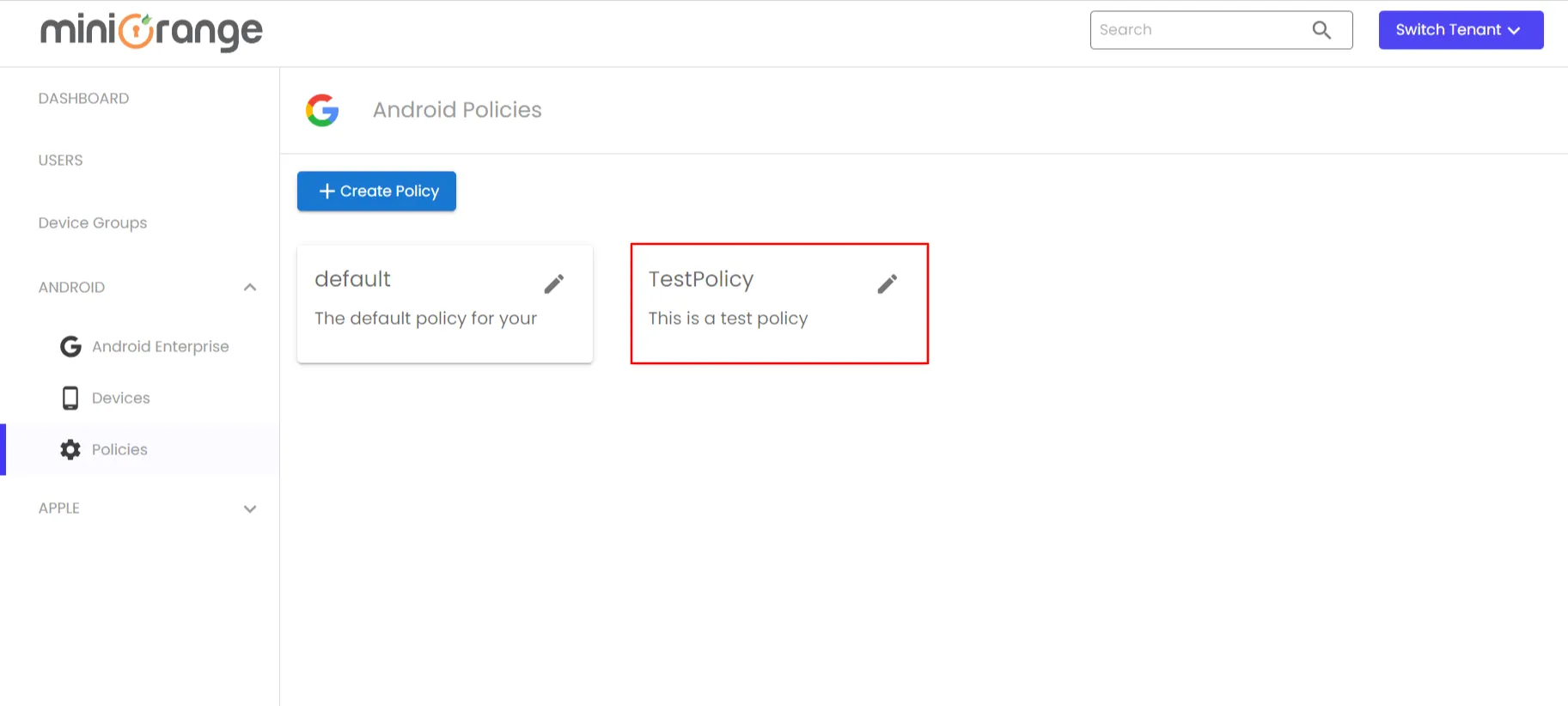
Not able to configure or register android device?
For this, you need to Contact us or email us at mdmsupport@xecurify.com and we'll help you setting it up in no time.
External References
miniOrange unified endpoint management offers a wide variety of security features with flexible scalability, all available at the most affordable price to all types of businesses. Start by signing up now!

